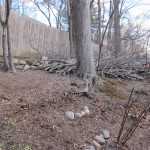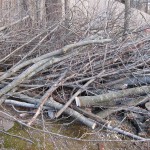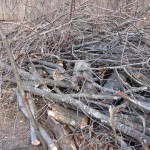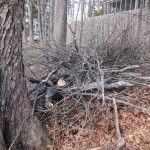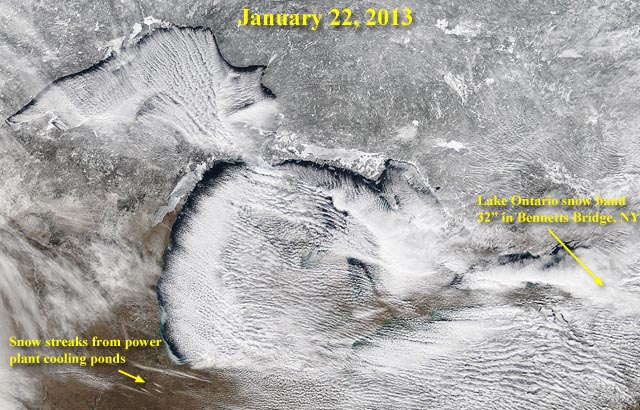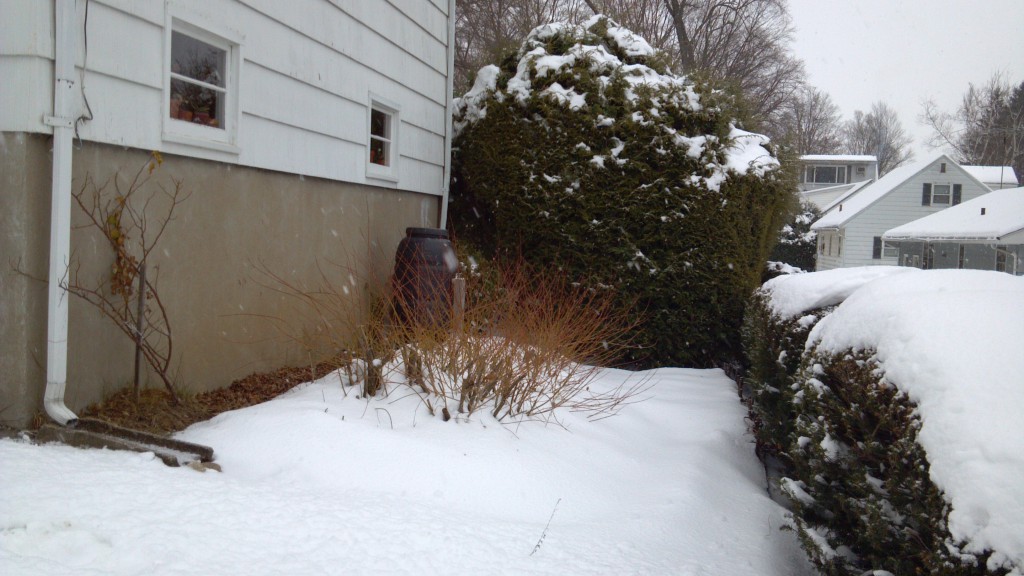A arborist came over before the snows fell to trim the maple trees on our property. He didn’t bat an eye when I asked him not to chip the branches, saving himself gas and providing me with Patrick Dougherty quantities of building materials and fuel.
Would You Kill A Robot?
“Christoph Bartneck of the University of Canterbury in New Zealand recently tested whether humans could end the life of a robot as it pleaded for survival.” –No Mercy For Robots, NPR
 The answer is yes, most people will terminate a robot with hardly a second thought. But most people don’t see robots as alive, even when they are programmed to beg for their lives.
The answer is yes, most people will terminate a robot with hardly a second thought. But most people don’t see robots as alive, even when they are programmed to beg for their lives.
Furthermore, the robots he used fall somewhere between a bacteria and a paramecium on the scale of complexity. Even with an acknowledgement of life, most people don’t think twice about stepping on bugs.
A better question might be, “Would you kill a robot that is a part of your life, one which has shared in your experiences, holds some of your thoughts, and has memories of you and your loved ones?” Anyone who has suffered the death of a hard drive knows the answer to that question. Such a loss is a personal tragedy, complete with very real anguish and even mourning. That’s why I back up my digital photos and videos religiously – two brains are better than one.
Weather and Climate
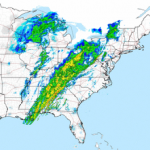 I heard about the tornadoes on the TV in the library court yesterday afternoon. Then I drove home through a warm breeze, carrying wisps of fog from the snow banks across the road and down to the river. The same weather system that brought destruction to the South gave us a night that reached 60 degrees in January and a gentle rain.
I heard about the tornadoes on the TV in the library court yesterday afternoon. Then I drove home through a warm breeze, carrying wisps of fog from the snow banks across the road and down to the river. The same weather system that brought destruction to the South gave us a night that reached 60 degrees in January and a gentle rain.
I’m tired of listening to scientists remind people that no individual weather event can be directly attributed to climate change. This is an intellectually honest and precise description of the descriptive power of scientific knowledge regarding an immensely complex system. It also completely misses the point.
The climate is defined by the sum total of the weather on this planet. If the climate is changing, then we will see the weather changing. And we can, with every freak snow storm, warm spell, hurricane, drought, etc. As disturbing as the weather has become, at least it is reaching a point where denial is no longer a tenable response.
Weather Machines
Via Dr. Jeff Masters’ WunderBlog and NASA, a beautiful image of the Great Lakes steaming in the cold:
I especially like the streaks of snow downwind of the power plants. Once again, we change the weather without even really trying.
Leaf Weir in the Snow
We returned from the winter holidays to find a blanket of snow on the ground, which highlights the way the leaf weir has changed the topography. Walking across it feels like solid ground.
Climate and Contours
It’s been a while since I’ve written here. A lot has been going on! We dodged a hurricane in the Valley, as Sandy only winged us. Olde Lyme CT wasn’t so lucky, with over 200 houses flooded. The older part of town did OK though, and we are reminded that it was settled on a hill in the estuary of the Connecticut River for the same reason Northampton is on a small bluff. Close to rich farmland, and good in a flood.
I’ve been thinking about land forms and contours a lot lately. Here in the Pioneer Valley we seem to be getting more of our rain in short bursts, with long dry periods in between. Since I live on a hillside with sandy soil and an erosion problem, catching rainwater has quickly become a priority. Reading The Urban Homestead will give you five or six good ideas for storing rainwater, and I’ve stumbled upon another that also eats leaves. I’ve dubbed it the “leaf weir.” Continue reading Climate and Contours
Simultaneous Publications
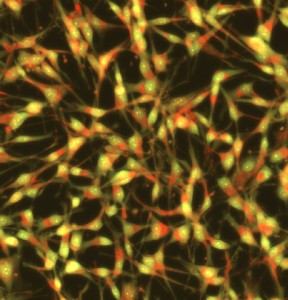 The networked mind is hard at work:
The networked mind is hard at work:
“There is a widespread belief among teachers that students’ constant use of digital technology is hampering their attention spans and ability to persevere in the face of challenging tasks, according to two surveys of teachers being released on Thursday… The timing of the studies, from two well-regarded research organizations, appears to be coincidental.” –New York Times
Far from coincidental. Just one more example of multiple people around the world consuming the same media diet, exploring the same possibility space, and generating the same intellectual output at the same time. This is the visible activity of a super-consciousness. Continue reading Simultaneous Publications
Choosing A Path
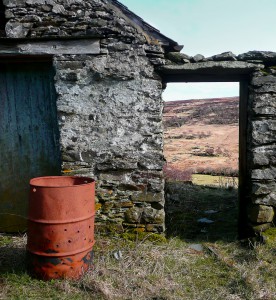 What happens when oil prices are pitted directly against the environment in a progressive state like California?
What happens when oil prices are pitted directly against the environment in a progressive state like California?
“Gasoline closing in on a record $5 a gallon prompted Governor Jerry Brown to direct California regulators to relax smog controls so oil refineries could increase supplies of cheaper fuel.” –Bloomberg
Cheap oil wins every time. This is what addiction looks like, and this is why I don’t have much hope for big political solutions to the climate crisis. When push comes to shove, our society doesn’t have the will to change course. Instead, the change has to come from the grass roots. We all have a choice to make about what sort of world we want to live in.
The Equinox at Loughcrew Cairns
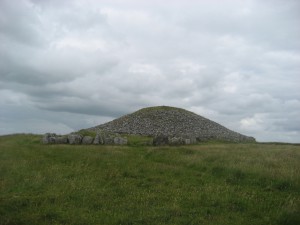 Rising above the fields and pastures of County Meath near the town of Old Castle stand some of the most impressive megalithic structures in Ireland. Some 24 rocky mounds dot the tops of the highest hills of the Slieve-na-Calliagh range. The largest of these were described in the 19th Century as passage tombs, but it is now clear that they served a far more interesting purpose, as astronomical clocks.
Rising above the fields and pastures of County Meath near the town of Old Castle stand some of the most impressive megalithic structures in Ireland. Some 24 rocky mounds dot the tops of the highest hills of the Slieve-na-Calliagh range. The largest of these were described in the 19th Century as passage tombs, but it is now clear that they served a far more interesting purpose, as astronomical clocks.
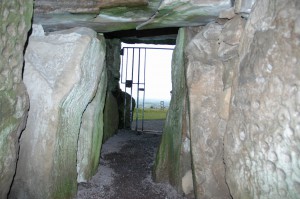 Some 5,000 years ago, the stone age people living in this place went to great effort to construct monuments that track the apparent motion of the sun as it rises and sets. They carried bright white quartz from a distance to face the monuments, which must have stood out as beacons to the surrounding countryside on a moonlit night. Continue reading The Equinox at Loughcrew Cairns
Some 5,000 years ago, the stone age people living in this place went to great effort to construct monuments that track the apparent motion of the sun as it rises and sets. They carried bright white quartz from a distance to face the monuments, which must have stood out as beacons to the surrounding countryside on a moonlit night. Continue reading The Equinox at Loughcrew Cairns
The Networked Mind
Several years ago, when blogs were young and the “blogosphere” was just beginning to get crowded, I came up with a neologism to describe it, the “clogosphere.” And what was the first thing I did with this burst of creativity? Turn to Google of course, to see if I was truly original. Unsurprisingly (in retrospect), there were already ten results for my clever new term. I cursed to myself, and began declaring to anyone who would listen that “If you think you’ve had an original thought, just google it and be humbled.”
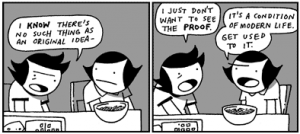
So, you can imagine my surprise when I was reading one of my favorite web comics and they made the very same point about Google deflating your sense of creativity. My insight into creativity was applicable to itself in a very “meta” sort of way.
This is certainly “a condition of modern life,” but as a historian of technology I know how often the simultaneous emergence of an idea or invention has cropped up in the past. If you live in the United States you were taught that Thomas Edison invented the electric light, but at least half a dozen other people around the world are held in similar regard, including Joseph Swan in England and James Lindsay in Scotland. Continue reading The Networked Mind
